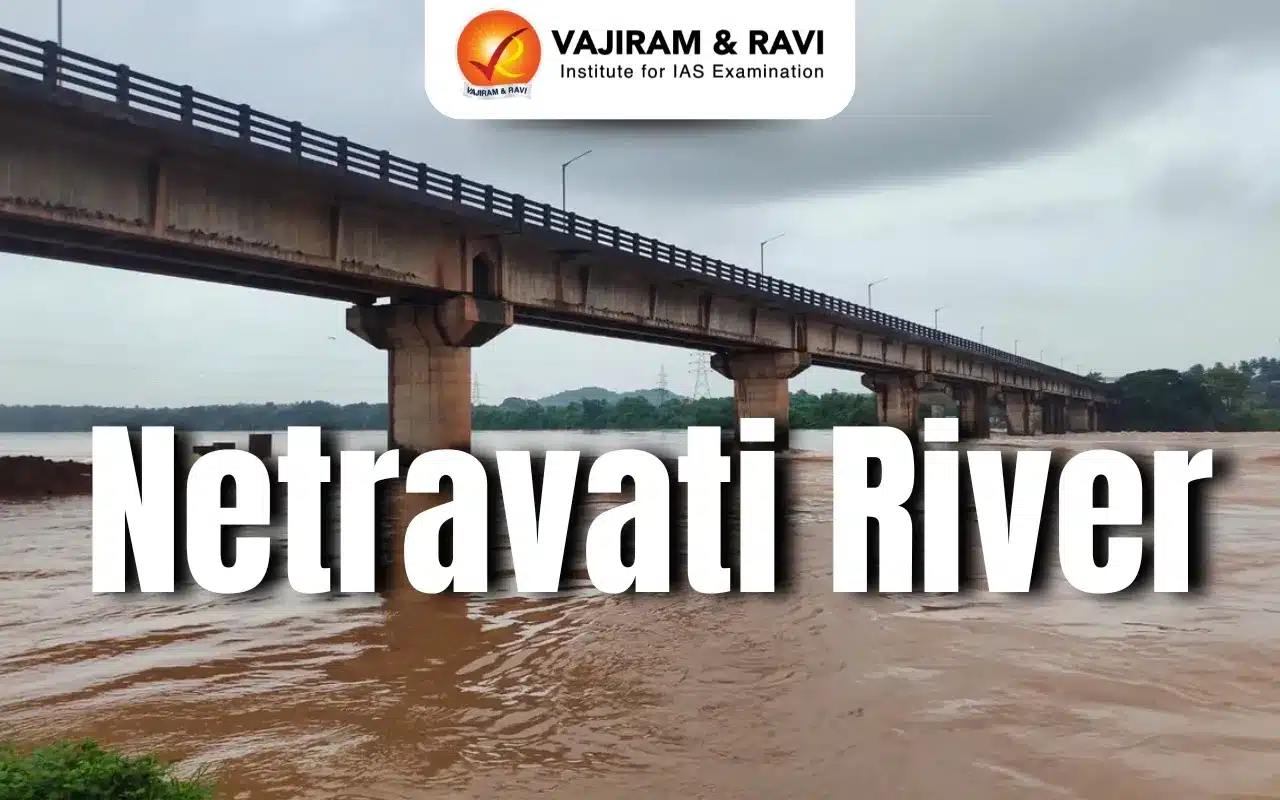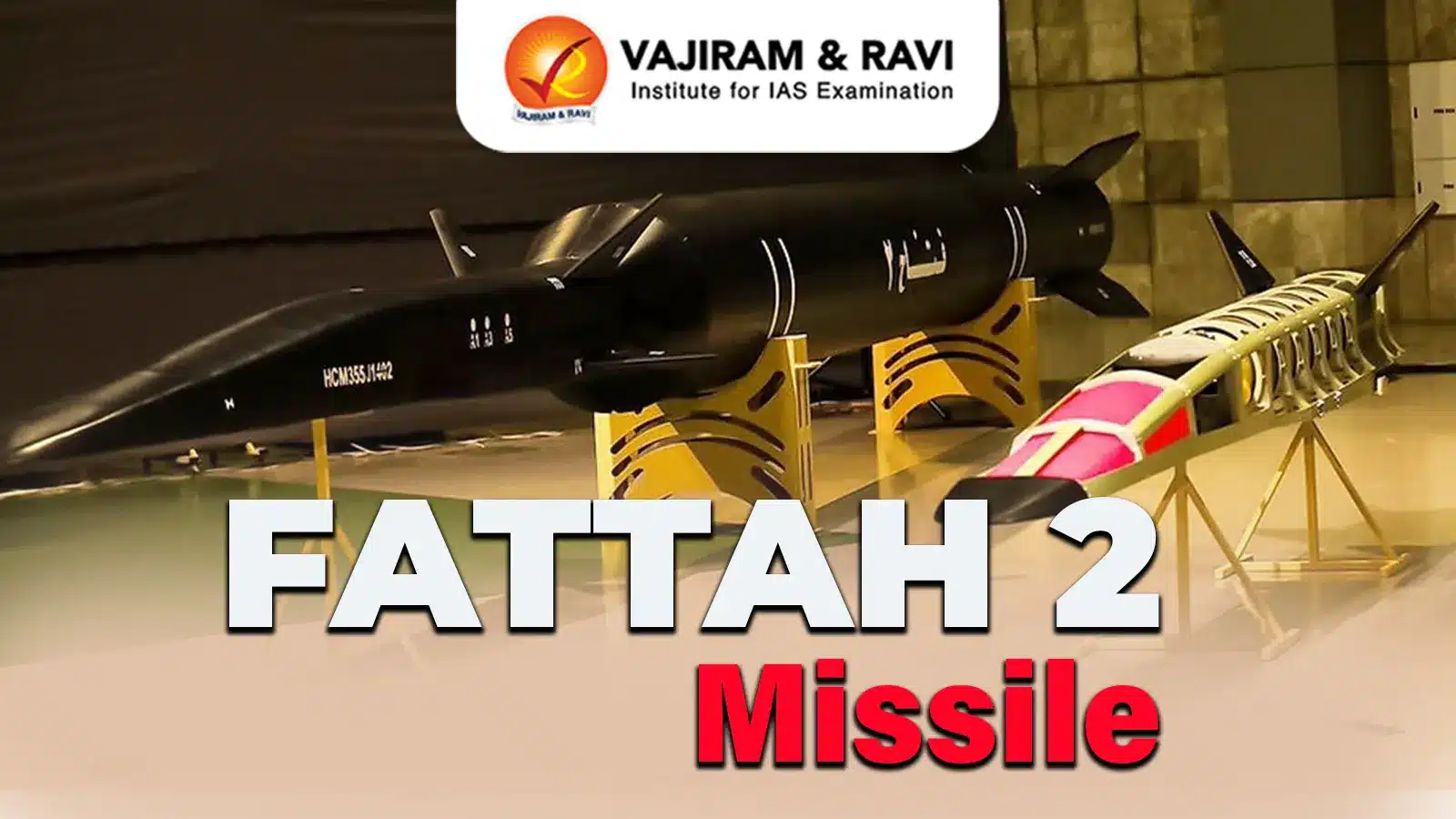Netravati River Latest News
Continuous rainfall in Dakshina Kannada district has led to an increase in the water level of the Nethravathi River, prompting precautionary evacuations of people from low-lying areas.
About Netravati River
- It is a major west-flowing river in Karnataka.
- Often referred to as the lifeline of Dakshina Kannada, the river is essential for the region’s sustainability.
- Course:
- It originates in the Bangrabalige Valley of Yelaneeru Ghat in the Kudremukha range of the Western Ghats in Karnataka.
- It begins its journey from an elevation of about 1,300 meters in Chikkamagaluru district, Karnataka.
- As it moves forward, the Netravati merges with its major tributary, the Kumaradhara River, at Uppinangadi.
- Netravati flows from Uppinangadi and enters the city of Mangalore, where it then joins the Arabian Sea.
- The total length of the Netravati is 103 km from its source to the outfall.
- The river drains an area of 3,657 sq.km.
- The climate of the basin is characterized by heavy rainfall, high humidity, and oppressive weather in the hot season.
- During the monsoon season, the river experiences heavy flooding.
- It is a major source of water to the cities of Bantwal and Mangalore.
- The town of Bantwal was located on its banks, and thus the Netravati River was called the Bantwal River in the last century.
- Along its course, the Netravati also flows through the popular pilgrim place called Dharmasthala.
- Tributaries:
- Kumaradhara River
- Mrithyunjaya River (Charmadi Hole)
- Kapila River (Shishila River)
- Aniyoor River
- Somavathi River (Laila River)
- Kaniyoor River
- Gundya River (Kempu Hole)
Netravati River FAQs
Q1. Is Netravati a west flowing river?
Ans. It is a major west-flowing river in Karnataka.
Q2. The Netravati River originates from which mountain range?
Ans. Western Ghats (Kudremukha Range)
Q3. Which river is Kumaradhara a tributary of?
Ans. It is a major tributary of the Netravati River.
Source: DH
Last updated on June, 2025
→ UPSC Notification 2025 was released on 22nd January 2025.
→ UPSC Prelims Result 2025 is out now for the CSE held on 25 May 2025.
→ UPSC Prelims Question Paper 2025 and Unofficial Prelims Answer Key 2025 are available now.
→ UPSC Calendar 2026 is released on 15th May, 2025.
→ The UPSC Vacancy 2025 were released 1129, out of which 979 were for UPSC CSE and remaining 150 are for UPSC IFoS.
→ UPSC Mains 2025 will be conducted on 22nd August 2025.
→ UPSC Prelims 2026 will be conducted on 24th May, 2026 & UPSC Mains 2026 will be conducted on 21st August 2026.
→ The UPSC Selection Process is of 3 stages-Prelims, Mains and Interview.
→ UPSC Result 2024 is released with latest UPSC Marksheet 2024. Check Now!
→ UPSC Toppers List 2024 is released now. Shakti Dubey is UPSC AIR 1 2024 Topper.
→ Also check Best IAS Coaching in Delhi
Tags: netravati river Prelims Pointers upsc current affairs upsc prelims current affairs
























